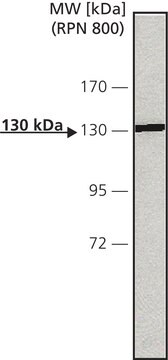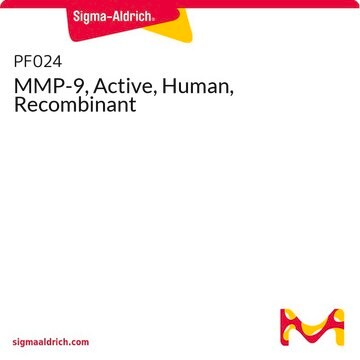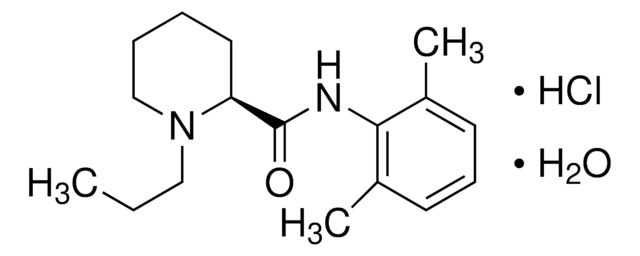C1119
Caroverine hydrochloride
≥98% (HPLC), solid
Synonym(s):
1-[2-(Diethylamino)ethyl]-3-[(4-methoxyphenyl)methyl]-2(1H)-quinoxalinone monohydrochloride
About This Item
Recommended Products
Assay
≥98% (HPLC)
form
solid
solubility
DMSO: >10 mg/mL
H2O: insoluble
storage temp.
2-8°C
SMILES string
Cl.CCN(CC)CCN1C(=O)C(Cc2ccc(OC)cc2)=Nc3ccccc13
InChI
1S/C22H27N3O2.ClH/c1-4-24(5-2)14-15-25-21-9-7-6-8-19(21)23-20(22(25)26)16-17-10-12-18(27-3)13-11-17;/h6-13H,4-5,14-16H2,1-3H3;1H
InChI key
JRNWTJUIMRLKBV-UHFFFAOYSA-N
Biochem/physiol Actions
Features and Benefits
Signal Word
Warning
Hazard Statements
Precautionary Statements
Hazard Classifications
Acute Tox. 4 Oral
Storage Class Code
13 - Non Combustible Solids
WGK
WGK 3
Flash Point(F)
Not applicable
Flash Point(C)
Not applicable
Personal Protective Equipment
Certificates of Analysis (COA)
Search for Certificates of Analysis (COA) by entering the products Lot/Batch Number. Lot and Batch Numbers can be found on a product’s label following the words ‘Lot’ or ‘Batch’.
Already Own This Product?
Find documentation for the products that you have recently purchased in the Document Library.
Our team of scientists has experience in all areas of research including Life Science, Material Science, Chemical Synthesis, Chromatography, Analytical and many others.
Contact Technical Service








